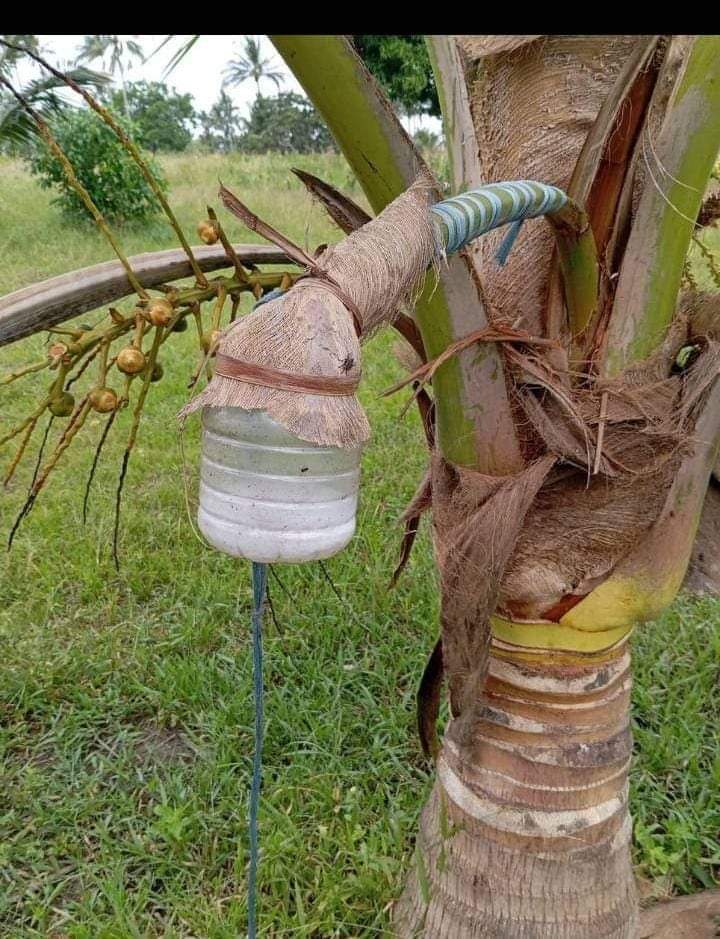For more than 20 years, palm wine (mnazi) sellers and producers at the Coast have been doing their businesses peacefully.
However, the recent war on illicit liquor, drugs and alcoholism declared by the national government, is affecting their livelihoods.
Mnazi was legalised in 2003.
The sellers and producers of mnazi are complaining of harassment by police officers and the local administration.
Kilifi leaders have said they were never consulted before the government declared war on alcoholism, because mnazi does not fall under illegal liquor.
They have ongoing termed the ongoing crackdown on illicit brew and drugs ‘inhuman and aimed at killing the economy of the region’.
The leaders said they do not understand why palm wine sellers were being harassed yet the wine is legal.
Kilifi Governor Gideon Mung’aro, while condemning the crackdown against mnazi, urged MCAs to enact laws to ban the sale of muguka in the county.
He said muguka causes more harm than good.
Mung’aro spoke in Jaribuni, Kauma subcounty.
“The deputy county commissioner and majority leader of the county assembly have spoken here and first we have to agree that mnazi is not an illicit brew. We are asking MCAs to speed up the process of enacting laws to regulate mnazi,” he said.
The governor said there should be set time when mnazi should be sold just like the way bars operate.
He asked all those involved in the palm wine sale to organise a meeting with the local administration and the security personnel to plan the time for drinking mnazi.
“Mnazi is not illegal but we have to set proper timelines for drinking because we cannot be a county where everybody will be a drunkard,” Mung’aro said.
Earlier, county assembly speaker Teddy Mwambire had accused the national government of failing to involve Coast leaders in the crackdown against illicit brew.
The brew has various cultural and social uses among the Mijikenda and branding it illicit is an insult to the community.
Mwambire said he will not sit back and watch mnazi sellers and users being harassed by law enforcers.
He wants the government to have a round table discussion with local leaders to know the importance of the brew in the Mijikenda culture.
“We have seen some people getting mad about the consumption of palm wine by our people but this is not an illicit brew but a cultural and social wine,” Mwambire said.
The coconut tree should also be categorised as a cash crop and receive government funding.
“I have never seen anyone complain about the negative effects of mnazi but the government is ready to allow the sale of muguka and miraa that have side effects on users,” Mwambire said.
“They are outlawing mnazi, which is natural and consumed straight from the coconut tree. We are going to push for legislation to make the coconut tree a cash crop, so the region can maximise its potential.”
Assembly majority leader Ibrahim Abdi said the coconut tree and its products must be accepted because it is a source of livelihood for many Kilifi and Coast residents.
“The only person who can decide on the fate of mnazi is the governor, not the national government,” he said.
Abdi said no one has ever died as a result of consuming mnazi and he urged the national government to provide any information they have of anyone who lost his life after drinking the wine.



